The long history of African-American film is almost a national secret. Oscar Micheaux has been the most astonishing early independent Black filmmaker, renown for his great contributions to a film genre that was termed race films. He has written, directed, produced and distributed forty-four films between 1918 and 1948. Twenty-four of these films were feature length. His last feature film was ‘Betrayal,” released in 1948.
Micheaux was born in Metropolis, Illinois as the fifth child of thirteen children born to Calvin S. and Belle Michaux — the ‘e’ was later added by Oscar to his surname. We know that his father was born into slavery in the state of Kentucky and that after the end of slavery the family faced continued social oppression. The Michaux family would eventually move from farming communities to the city to offer their children access to better schooling.
How Micheaux came into film-making is still a mystery. He moved to Chicago, Illinois when he was 17 years old to live with his brother. He began working in Chicago’s stockyards and performing other odd jobs. The story is told that after Micheaux was cheated out of a pay off two dollars from an employment agency, he decided he would only work for himself. Micheaux subsequently became known as an aggressive entrepreneur, with a reputation for his hard work and sharp dress.
Micheaux started out in the creative arts as a novelist. He published at least ten novels before turning to filmmaking. He established his film production offices as the Oscar Micheaux Corporation, located at 135th Street in Harlem, New York. He was often seen around Harlem wearing long Russian fur coats against the New York winter winds.
Excerpt from Oscar Micheaux’s 1939 Film “Lying Lips”
In the spring, Micheaux business model was to tour theaters across the country where he would stop to show theater managers his new screenplays and stills of his casts. He sometimes travels with movie casts to promote his films to theaters. Once Micheaux booked a film at a theater, he requested an advance against the film’s booking — funds that he used in the summer as production money for shooting and editing. He would shoot and edit the film and commence with distribution to theaters.
Micheaux’s career spans both silent and talking pictures. Most of his films dealt with race problems in America. Paul Robeson — the great actor, concert artist, and social activist — made his first film under Micheaux’s direction in the picture “Body and Soul,” a silent film. Not only was Micheaux the first producer to cast Robeson in a film, he was the first director to make an all-black talkie, “The Exile.”
Micheaux’s second wife, Alice B. Russell, was an actress who appeared in several of his productions. She was very private and lived in seclusion in her New York apartment after her husband died on March 25, 1951, of a heart attack in Charlotte, North Carolina.






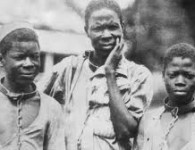

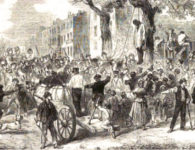
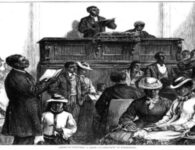

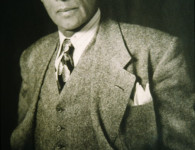
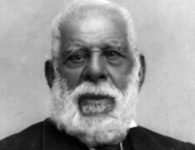
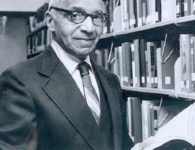

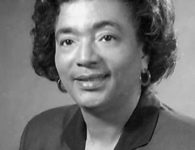

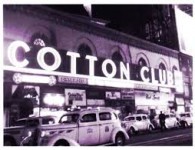
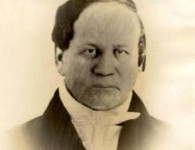
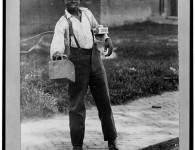

1 Comment
How strange, or is it really, that this man’s work has taken so long to be acknowledged by the american public
after all these years. I knew of his work but did not know of his close friendship with Mr. Paul Robeson until later in life. In fact, when Robert Osborne presented his excellent silent movie “Within our Gates’ on one of the classic movie cable t.v. broadcast, he announced that the excellent restoration of the original film’s only existing copy was discovered not many years ago in Spain! Perhaps the friendship between Robeson and Micheaux and Robeson’s participation in the Spanish Civil War could explain how the film got there in that
country as Robeson made films in Europe with the Russian Movie producer Einsentein and could possibly have possessed a personal copy of the film. Oh and by the way, Mr Osborne at the end of showing of the movie Within our Gates made it a point to explain that Negroes in the United States joined whites to boycott
him because of his blunt presentation of just how blacks participate in their own dis-empowerment in the
film. And of course all should know how Mr. Robeson was abandoned, betrayed, and attacked to the point of attempting suicide! These along with so many brilliant minds should have been icons and heroes whose names should be on the tongues of blacks young and old for generations to come, yet no one remembers
them!
HOW STRANGE! OR IS IT REALLY?
Erick Dean Tippett
Retired Musician/Teacher
Chicago, Illinois